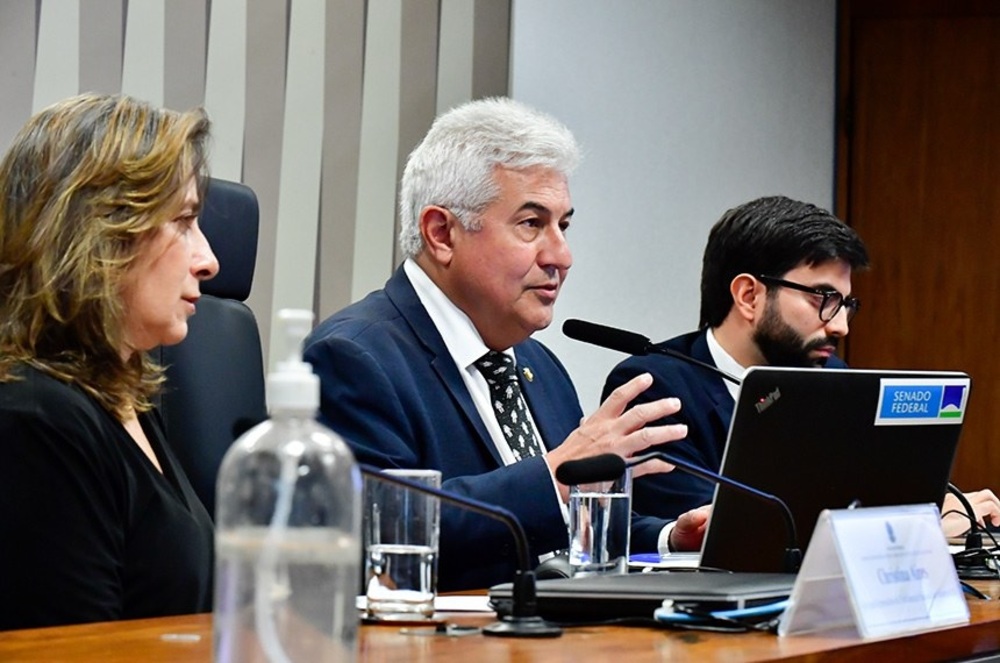Zona de Azar Brazil – Brazil: Experts Advocate for Changes in the Bill Regulating AI

 Brazil.- September 6, 2024 www.zonadeazar.com Experts participating in the public hearing on the bill regulating artificial intelligence (AI) advocated for changes to the text before it is voted on by the temporary committee on artificial intelligence (CTIA).
Brazil.- September 6, 2024 www.zonadeazar.com Experts participating in the public hearing on the bill regulating artificial intelligence (AI) advocated for changes to the text before it is voted on by the temporary committee on artificial intelligence (CTIA).
During Wednesday’s (4) debate, participants expressed concerns that the proposal might discourage innovation, competitiveness, and consequently the country’s economic and social development by not allowing flexibility in rules such as those dealing with the classification of AI systems as “high risk.” The debate was chaired by Senators Astronaut Marcos Pontes (PL-SP) and Chico Rodrigues (PSB-RR).

The Bill (PL) 2.338/2023, from Senator Rodrigo Pacheco (PSD-MG), president of the Senate, is being processed alongside nine other bills on the subject, with Senator Eduardo Gomes (PL-TO) serving as rapporteur. The CTIA is the only body analyzing the bill before it goes to the Plenary.
According to Pontes, it is necessary to produce an updated text that does not become obsolete by the end of its legislative process, one that protects users while also providing legal certainty for the AI industry and all markets that use or may use this technology.
— Legislation like this, as it deals with rapidly evolving technology, risks becoming obsolete minutes after being enacted if we are not careful with the main text. So this care is necessary. We need to protect people, logically, through risk analysis, but also our market, helping companies develop this technology in Brazil. This means reducing restrictions and removing from the text anything unrelated to AI technology.
Risk Classification
Courtney Lang, vice president of Policy, Trust, Data, and Technology at the Information Technology Industry Council in Washington, D.C., mentioned that one aspect of the bill that could be revised is the classification of AI systems as high risk. According to her, not every use of AI in a specific context should necessarily be considered high risk, and the text should include a clear definition of specific situations where the technology would be classified as such.
The bill creates different rules for regulatory levels defined according to the risk to society. An AI system can be classified as “excessive risk,” which would be prohibited; “high risk,” which would be controlled; or not fit into either category. To determine risk, an AI system will need to undergo a preliminary assessment conducted by developers, suppliers, or operators.
Luis Fernando Prado, professor at the Faculty of Law of Vitória (FDV), also expressed concerns about this provision. He believes organizations need more flexibility in deciding how to conduct risk assessments and that the law should not impose such rigid obligations, like requiring data to be stored for five years.
Copyright
Prado also highlighted that PL 2.338/2023 could become one of the most restrictive AI-related legislations in the world regarding copyright. He proposed a more balanced approach allowing the use of legally available works for computational analysis, respecting the rights of authors.
The bill establishes rules on copyright, which face challenges due to generative AIs that create images and texts. Copyright-protected content may be used in AI system development as long as it is obtained legitimately and for non-commercial purposes, while respecting other requirements.
Testing Period
Attorney Christina Dias, a specialist on the topic from the National Confederation of Industry (CNI), argued that the proposal should exempt systems in test operations from penalties to avoid stifling innovation in the industry, trade, and services.
Regulatory Agency
The CNI also raised concerns about regulatory overlap between the sectoral authority and the central authority. The bill envisions a set of bodies working together to regulate the AI market, coordinated by the National Data Protection Authority (ANPD).
Council
One of the principles of the proposal is the protection of labor, which will be overseen by a Regulatory Cooperation and Artificial Intelligence Council. According to Matthew Reisman, from the Information Policy Leadership Center in Washington, D.C., this council should work in coordination with all involved agencies.
Rights and Objectives
The report presented by Eduardo Gomes includes 12 chapters covering topics like transparency, international cooperation, inclusive growth, and environmental protection.
The bill also ensures a series of rights for individuals affected by AI systems, including:
- the right to prior information about their interactions with AI systems;
- the right to privacy and the protection of personal data;
- the right to human participation in AI decisions, depending on the context.
Agência Senado (Reproduction authorized with citation to Agência Senado)
Source: Agência Senado
Editó: @_fonta www.zonadeazar.com